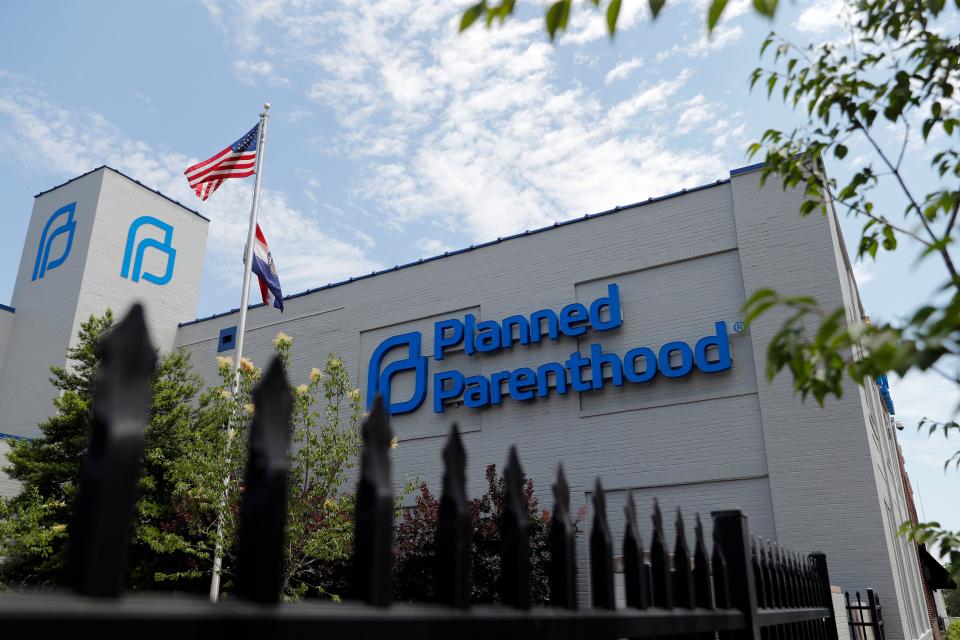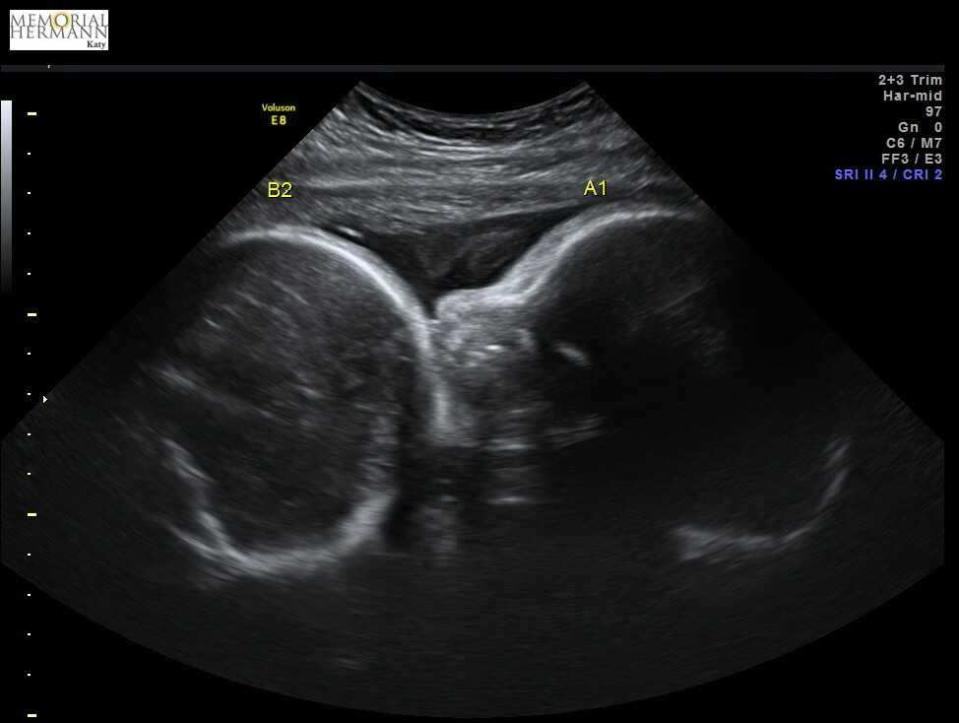I was pressured for wanting my at-risk baby. Abortion and eugenics can't be separated.
- Oops!Something went wrong.Please try again later.
Recently, the head of Planned Parenthood acknowledged the racist and eugenic beliefs of its founder, Margaret Sanger, and stated that the organization is working to undo the damage these views have caused. I applaud Alexis McGill Johnson for openly discussing the ugly origins of Planned Parenthood, but completely disagree that the organization is capable of stopping what Sanger started. Eugenic motives are still alive and well in the abortion- and contraceptive-providing business, of which Planned Parenthood is a leader.
In March, I was lying on an exam table in a local hospital for a 20-week ultrasound, after which an attending doctor was brought in to look over the imaging and answer any questions I had. While the ultrasound tech said my baby’s physiological specs looked great, the doctor redirected the conversation to my child’s possible risk of Cystic Fibrosis (CF), which causes damage primarily to the lungs and digestive system.
I am a CF carrier, and we haven’t tested if my husband is or not, so, the doctor encouraged me to get him tested so we could have a risk percentage for this child.
I told her I don’t care to do so; I already have three healthy children with this man, CF risk or not. But she continued to push the issue. “Would knowing the chance of CF for my child give us a head start in providing care for her?” I asked. No, she said. My ultrasound shows no Down Syndrome risk, but CF can’t be seen by ultrasound, she stressed. I’d need my husband to be tested to have an estimate.
Children with special needs are a gift: I was pressured to abort my children. For my first baby, I gave in.
I repeatedly tried to wrap up the conversation; she repeatedly tried to focus on how there could be something wrong with my baby. Neither of us used the word "abortion," but it was obvious she was trying to steer our conversation into a discussion about it. I felt like she was trying to convince me to care about something, a CF diagnosis, that I didn’t care about – like she was trying to convince me to un-want my pregnancy.
Genetic testing and abortion
The entire exchange had less to do with my 20-week-gestated baby’s development and more about genetic testing data that could render my child defective and disposable in her eyes.
The doctor seemed unable to see my child’s humanity. I wondered how many vulnerable moms she had encouraged to remove their supposedly “imperfect” children from the gene pool. Detectable in utero or not, hardships are a part of life, I thought, and I don’t believe they make life not worth living.

I recently learned that my state of Ohio has a law prohibiting doctors from performing abortions if the woman seeking it has informed the doctor her motivation is fear the child has Down Syndrome. In the United States, about 67% of children who are diagnosed with Down Syndrome after genetic screening are aborted. In other countries it is much higher; 90% in the United Kingdom; 95% in Denmark; nearly 100% in Iceland.
Her death was a gift of mercy: I had a later abortion because I couldn't give my baby girl both life and peace
A panel of judges suspended the Ohio law from enforcement in 2019, but last month, a U.S. Circuit Court of Appeals reversed that decision, allowing the law to be enforced once again. Laws like this aim to curb abortions sought for eugenic purposes – i.e. for reasons of discrimination due to race, sex, or disability. In my case, the concern for my child’s possible disability wasn’t coming from me, but from the doctor pushing the CF fear on me.
I’ve come to see abortion and eugenic thinking as quite intertwined, and what makes me completely disbelieve that Planned Parenthood cares is that we don’t see them lobbying to expose or stop pressured abortions, or notifying the state when underage girls are raped and made pregnant by adult men. Despite purporting to exist for women’s free choice, they make money from women’s abortions, so they are not without incentive. According to the organization's recently released 2019-2020 annual report, although the number of patients seen remained unchanged from the year before, the number of abortions performed actually increased to nearly 355,000.

Racial differences in abortion
Women who have had abortions can experience disenfranchised grief. Many abortion activists assume any question or limit on abortion is motivated by a desire to hold women back; it can’t possibly be due to genuine care for the child. Some abortion activists fear any question or limit on abortion, even in cases of eugenics, will be the beginning of the end for their cause. Maybe it will be. Maybe seeing the fetus in utero as someone worth protecting from discrimination based on race, sex, or disability is the beginning of seeing them as having human rights.

We can discuss this issue as a culture, but we cannot pretend Planned Parenthood, the United States’ largest abortion provider, is an impartial party in this conversation.
Former Planned Parenthood employee: Planned Parenthood cares about abortion above all, even patients' health
According to the Centers for Disease Control and Prevention, Black preborn babies were most likely to be aborted of all races in 2018. In some areas of New York City, Black children are more likely to be aborted than born alive. A 2012 study by Protecting Black Life found that 79% of Planned Parenthood’s surgical abortion facilities are within walking distance of minority neighborhoods. And the International Planned Parenthood Federation continues to push for abortion and contraception overseas.
In multiple African countries, women have been implanted with contraceptive devices even after they were discontinued in the United States due to safety concerns, despite some of those women having less access to health care when they experience side effects and complications. According to Nigerian biomedical scientist and author Obianuju Ekeocha, aggressive contraceptive programs, far from helping African women, "will only make them sterile at the cheapest rate possible."
So consider me unconvinced that Planned Parenthood can undo its founder’s motives to reduce the number of “unfit” people born into the world. Abortion providers have a habit of seeing some lives as more worthy than others – it’s ugly, I know – but it’s kind of their thing.
Mary Rose Somarriba is editor of Natural Womanhood and associate editor of Verily Magazine. She completed a Robert Novak Journalism Fellowship on the connections between pornography and sex trafficking. Find her at maryrosesomarriba.com.
You can read diverse opinions from our Board of Contributors and other writers on the Opinion front page, on Twitter @usatodayopinion and in our daily Opinion newsletter. To respond to a column, submit a comment to letters@usatoday.com.
This article originally appeared on USA TODAY: Planned Parenthood, abortion industry can't be separated from eugenics

